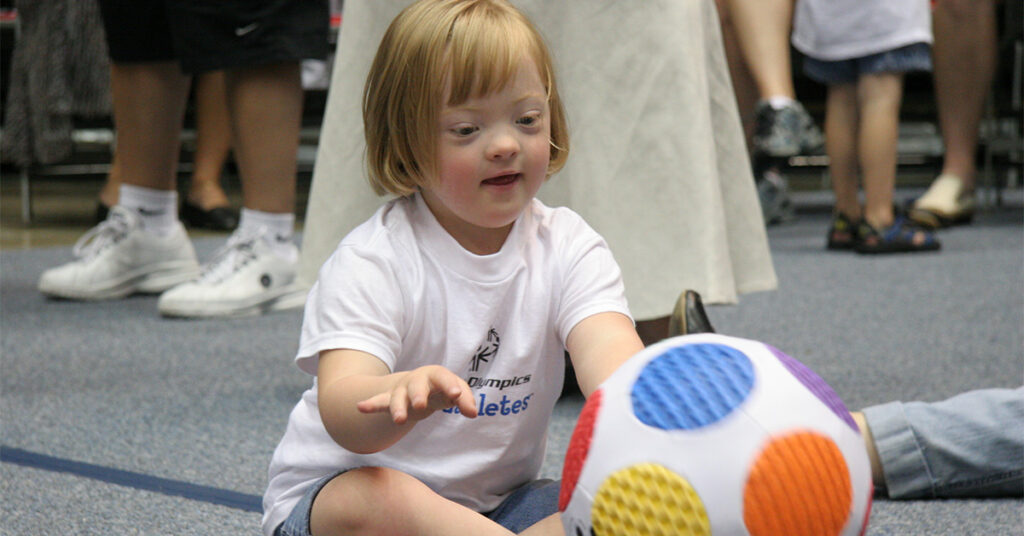It starts from something so simple: a child finding it difficult to concentrate, not being able to read, or not even being able to conduct proper eye contact. All these factors may seem like something a parent shouldn’t be worrying about. However, more often than not, these can be signs that your child may have an intellectual disability.
People with intellectual disabilities were horribly misjudged in the past. What supposedly are the symptoms of their condition were perceived as acts of retribution. Individuals with this condition felt like a burden to some family members. Not to mention, the difficulty that came with them not responding properly to help. But as time passed, public perception toward intellectual disabilities has improved rather significantly—and yet there is still so much left to unlearn.
With so many misconceptions about intellectual disabilities, is there a truth among them? In this article, we try to demystify the most popular beliefs surrounding intellectual disabilities.
What is an intellectual disability?

An intellectual disability is defined as a condition where a person has an impairment in their cognitive functioning and skills. This includes their communication, social, and self-care abilities. Because of the aforementioned limitations, it can give a child a harder time to develop or a slower time to learn new things.
As they age, they may also have trouble with processing more complex information such as things involving money and time. Intellectual disabilities or developmental disabilities may be caused by issues during pregnancy or birth, health problems, illnesses, environmental factors. Alternatively, it can also be passed on genetically.
There are many types of intellectual disabilities such as the following:
- Fragile X syndrome
- Down syndrome
- Developmental delay
- Prader-Willi syndrome
- Fetal alcohol spectrum disorder
Common misconceptions about intellectual disabilities

The concept of intellectual disability has been in existence for several decades, and its implication to human life has probably been observed even earlier, however misguided due to the lack of ample research on it.
With that came a lot of myths that people had believed to be true. The problem is how those factors may have contributed to how society perceives and treats people with developmental disabilities. That being said, it is important to distinguish what is true from what is not.
Here are the following misconceptions about intellectual disabilities:
1. People with intellectual disabilities are in severe conditions and therefore, unfit to join society.

Having an intellectual disability or developmental disability may hinder an individual to live a perfectly normal life. However, not everybody is considered a severe case. In fact, 85 percent of cases of intellectual disabilities are deemed mild cases. People who have this level of impairment are more than able to engage in activities such as learning at school, playing sports, or even working as an employee.
Just because you are intellectually challenged does not mean you cannot be a contributing member of society. They may not learn or process information as fast as a regular person, they can still perform even the simplest tasks with little trouble.
2. People with intellectual disabilities cannot start a family.

Some people believe that those with intellectual disabilities cannot get married nor have any children. But as it turns out, their cognitive impairments do not have anything to do with their reproductive organs. Any person with an intellectual disability is able to produce a child (not unless they are barren, which is completely unrelated to their intellectual disabilities).
An intellectual disability does not make you unfit for family life. Interestingly, many Special Olympics athletes and other persons with intellectual disabilities managed to marry, have children, and even have grandchildren.
3. People with intellectual disabilities should not participate in regular school.

If you or a loved one is living with an intellectual disability, it’s possible you have encountered once in your lifetime someone saying that you cannot go to school for normal kids. Some people think that a child with a learning disability cannot progress side-by-side with other children who do not share the same condition. It can only cause negative effects.
However, it has been proven time and time again that children with or without intellectual disabilities can learn and play together. Also, being in an inclusive environment opens doors to more understanding, patience, and compassion.
4. People with intellectual disabilities should not join a workplace.

This is the same situation as that of those believing that intellectually disabled people should not participate in normal schooling. Truth to be told, individuals with developmental disabilities who are accepted in companies and treated like normal employees enable them to function better. They have an easier time blending in with the crowd—even thriving!
Instead of discriminating them, they should be embraced and encouraged.
5. People with intellectual disabilities cannot play sports or any intense physical activity.

It is a floating belief for some people that those with intellectual impairments aren’t meant to play sports, especially those that involve contact with others. It may be that they perceive that because of their slow learning ability, they might not be able to be coordinated enough to thrive in intense physical activities.
Ironically, there are many athletes who have an intellectual disability. They don’t just play sports but they also join competitions and actually win some of them. Unfortunately in the past, there weren’t many sports programs that accepted individuals who fell under that category. Special Olympics is continuously making efforts to change that.
6. People with intellectual disabilities receive better healthcare.

Because they have intellectual impairments, they tend to receive better treatment when it comes to healthcare. As much as we’d like to believe that, it isn’t true. People who are intellectually disabled only receive substandard healthcare services or simply no care at all. They are often neglected or overlooked compared to other types of conditions.
What’s worse—research has shown that people with intellectual disabilities die 16 years earlier than the general population.
Intellectual disabilities: should we fear them or understand them?

It is important to know and understand the truth behind intellectual disabilities. This way, we can help people with this type of condition better.
Special Olympics Pilipinas is the official Philippine chapter of the global organization aimed towards empowering persons with intellectual disabilities through competitive sports. To know more about us, click on this link.

